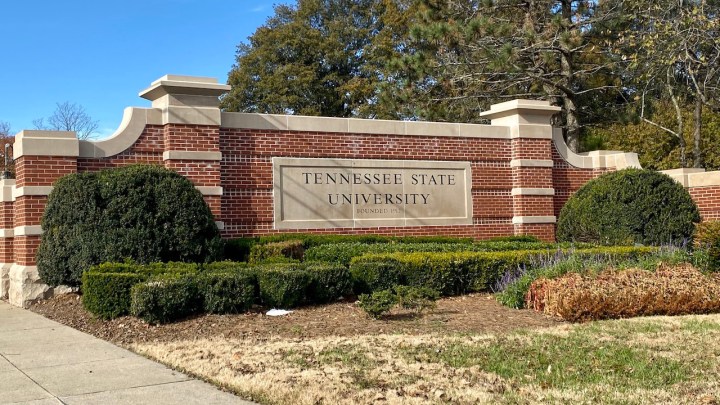
Historically Black colleges and universities are chronically underfunded
Historically Black colleges and universities are chronically underfunded

Landing a scholarship while attending Tennessee State University, the only historically Black state college in Tennessee, didn’t come easily for alumna Hailee Roye.
She paid her first few years of tuition by taking out student loans.
“I started getting a scholarship, maybe like my second year, going into my third year,” said Roye, who is Black and graduated in May. She said she still has about $32,000 in student loan debt.
Generally, Black students who enroll at Tennessee State are less likely to graduate than Black students at the state’s other public colleges and universities. The six-year graduation rate is only 36.7%.
It’s an issue that Walter Kimbrough, the president of Dillard University — an HBCU in Louisiana — said comes down to one thing: underfunding.
“Sometimes people say, ‘You can’t just solve problems by throwing money at it,'” he said. “No, this is one you actually could. If I’m providing more financial aid for students, I could improve graduation rates overnight.”
Missing land-grant dollars
Earlier this year, a report prepared by Tennessee’s Office of Legislative Budget Analysis found that Tennessee State had been underfunded for decades.
The college is one of many universities with a federal land-grant designation. It means the federal government gives the college money while requiring matches from the state. Tennessee State didn’t receive its matches from 1957 to 2007 — an amount totaling upward of $500 million.
But underfunding isn’t exclusive to Tennessee. From 2010 to 2012, HBCUs nationwide missed out on a combined $57 million in state matches, according to a study by the Association of Public and Land-grant Universities.
At Tennessee State, underfunding has limited its ability to provide student scholarships and comfortable housing.
In January, the institution’s president, Glenda Glover, told lawmakers the college was so short on cash, it sometimes must pull from reserve funds to support its students. She compared it to using a savings account to pay for vacations.
“That’s not how you live — even your own personal life,” she said. “So, we can’t run a university like that.”
Chronic underfunding, Glover said, has also made the college unable to build its endowment.
There’s a lot happening in the world. Through it all, Marketplace is here for you.
You rely on Marketplace to break down the world’s events and tell you how it affects you in a fact-based, approachable way. We rely on your financial support to keep making that possible.
Your donation today powers the independent journalism that you rely on. For just $5/month, you can help sustain Marketplace so we can keep reporting on the things that matter to you.

















